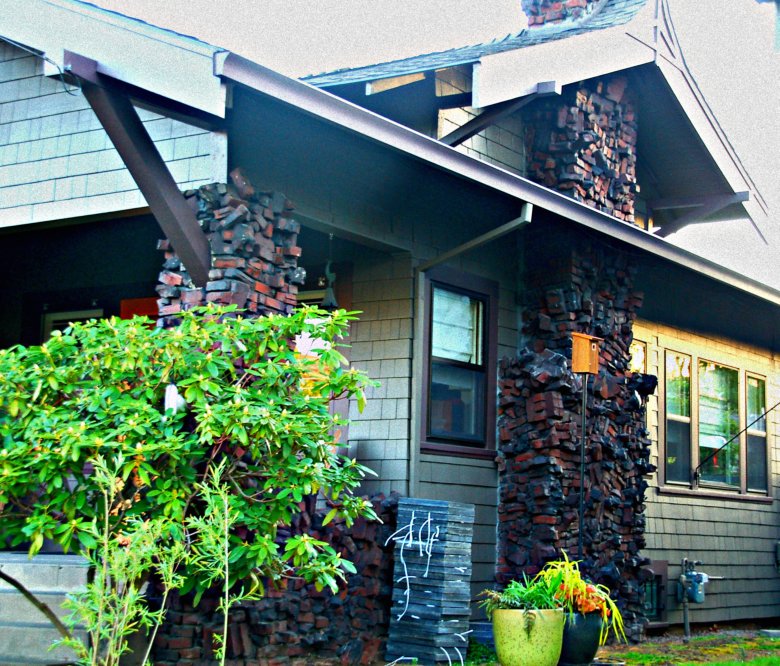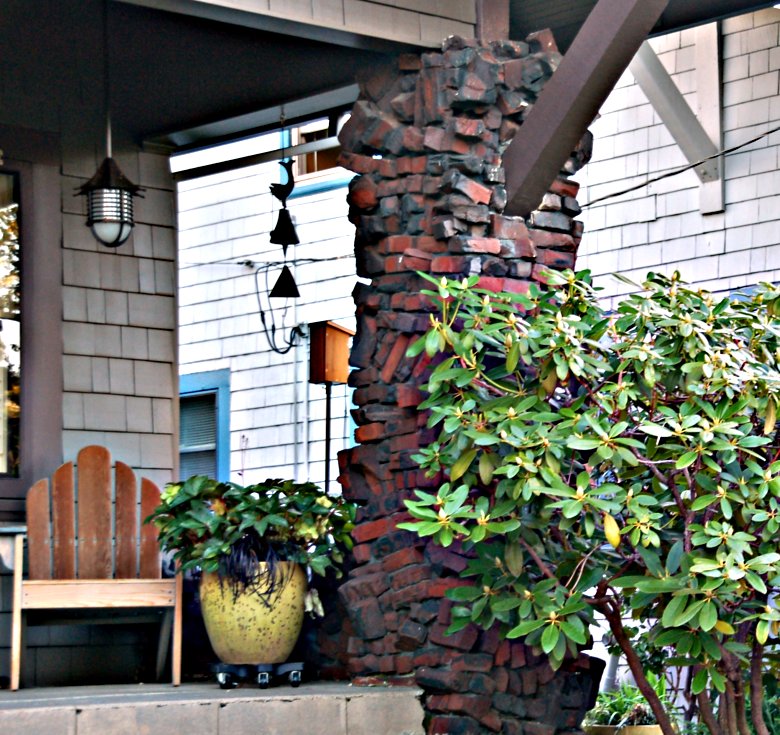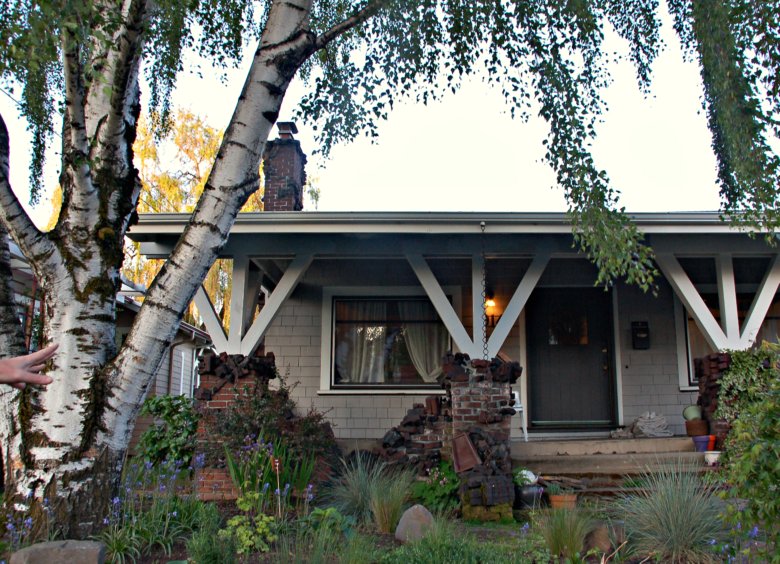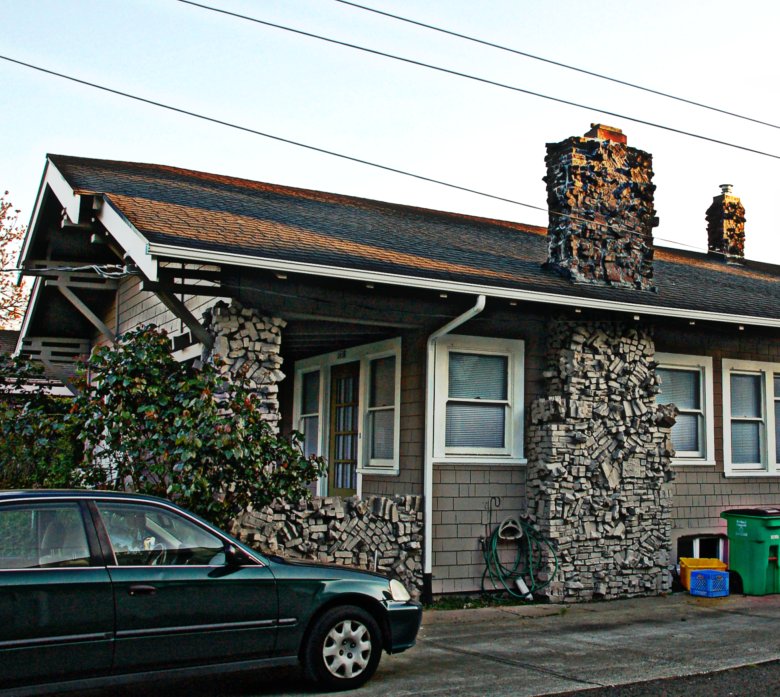
On May 19 I enjoyed an Architectural Heritage Center Neighborhood Walk, through the Hollywood District. We saw lots of interesting houses and buildings, heard lots of interesting history, and walked lots and lots of blocks. Since I don't have house architecture styles memorized, I can't remember what we saw where, drat it. But I can remember clinker bricks. I've had some fun with Picnik on these photos.

Here's a close-up photo of the same front porch column. I wonder if it is completely made of clinkers or if they just cover the column?

Around the corner and down the block, more clinkers decorate this porch.

I saw this house before the one that is in the top photo, but seeing the clinkers painted gray bothered me too much to put this house as the first photo. However, I have altered the photo in Picnik so that you can see the design developed with the clinker bricks. And thank goodness the person who wielded that doggone paint brush didn't get up on the roof and paint the chimneys!
I think you'll learn lots from this Old House Journal article, “The Accidental Charm of Clinker Bricks”.
And here's some info from Wikipedia: Clinker bricks are partially vitrified brick stones used in the construction of buildings.
Clinkers are burnt under temperatures so high that the pores of the fuel property are closed by the beginning sinter process. Thus they are considerably denser and therefore heavier than regular bricks. Clinkers hardly take up water and are very resistant.
In early brick firing kilns, the surface of the bricks that were too close to the fire changed into the volcanic textures and darker/purplish colors. They were often discarded, but around 1900, these bricks were discovered by architects to be usable, distinctive and charming in architectural detailing, adding the earthy quality favored by Arts & Crafts style designers. Modern brick-making techniques can recreate the appearance of these bricks and produce a more consistent product.
In the United States, clinker bricks were made famous by the Pasadena, California architecture firm Greene and Greene who used them (often in combination with native rocks) in walls, foundations, and chimneys.
No comments:
Post a Comment